China revels in abolishment of USAID
While official reaction was muted, a few state media couldn't resist gloating. Unfortunately, nearly everything they said could have been about themselves.
After the Trump administration liquidated USAID this week, it didn’t take long for many to celebrate.
Not all. Official reaction in China has been largely muted. No smug commentaries. No hectoring MoFA press conferences.
Instead, it’s almost as if the Communist Party of China have hushed themselves, for fear the US realises what Hara-kiri it is committing. Ending funding overnight for hundreds of investigative journalists, researchers and civil rights campaigners potentially ends a steady source of irritating uncomfortable truths for Beijing. And leaves a spate of vulnerable activists free to be picked off.
Never interrupt your enemy while he’s making a mistake, runs the old adage.
Yet, it wasn’t completely silent. A couple of holdovers from the country’s Wolf Warrior mentality, couldn’t resist breaking cover…
“Paid mouthpieces for the government”
Media Unlocked is a production studio run by China Daily. Not that you’ll find that mentioned in any of their bios across TikTok, Facebook, and X. “China-based “energetic, patriotic young journalists”. Covering China & Global Issues #Xinjiang #SouthChinaSea #Taiwan #China,” is how they describe themselves on Musk's platform now the labels are gone.
Full disclosure, I know these two well. One was my sometime cameraman, the other I used to edit her tweets. Both Party members, and two of the most overtly so round the office. Bright, but politicised to the point of being blinkered. I remember one patiently explaining to me the virtues of Xuexi Qiangguo over lunch (rough translation “Study Xi, strong nation”), the app that all Chinese journalists have to regularly pass tests on to maintain their official press credentials. Whereas most colleagues see time on it as a hassle: my colleague was genuinely enthused. “It’s just so useful.”
As political change hit the newsroom, and the “Media sponsored by the Party and government must hold the family name of the party” doctrine finally trickled down, and Wolf Warriorism growled up, their careers soared. Surely the two were promoted for their talents, as it can't have been for their self-awareness.
“Shocking revelations just exposed Western legacy media for what they really are: paid mouthpieces for the US government,” runs their latest tweet, in a measure of staggering gall.
It goes almost without saying that China Daily is wholly owned, funded, and operated by the Communist Party of China. In the outlet’s Social Corporate Report, China Daily describes its mission for English language content as to: “Strengthen proactive publicity and actively tell the story of the Communist Party of China to the outside world.”
Under the heading “Guiding public opinion” the report states: “based on the characteristics of external propaganda, we will effectively carry out public opinion struggles”.
How? Enter China Daily’s “patriotic journalists”, with a lot of government backing. Not only are their videos paid for by the Propaganda Bureau, and shot from China Daily’s recently constructed studio, so are the bot farms that inflates its numbers. Content is also boosted by officials retweeting, and Party member engagement campaigns.
“The video "The Misunderstood Rise" produced by the Media Unlocked Studio has a dissemination volume of over 1.5 billion (!) and has been quoted many times by the spokesperson of the Ministry of Foreign Affairs,” the report boasts.
“The Western legacy media isn't just biased-it's been bought and paid for,” thunders Media Unlocks tweet without irony.
“They are all bought by CIA / MI6”
Staying with China Daily is Chen Weihua, the firebrand EU bureau chief, known for his caustic takedowns. Chen is such a Chinese patriot he’s lived overseas for two decades — first clinging on to New York, and now Brussels.
Chen, like Media Unlocked, is mentioned in the China Daily report under the section: “Guiding public opinion”.
The aim of his web series is to contribute towards: “Establishing and strengthening a rapid response mechanism for public opinion, coordinate all departments and platforms to strengthen tracking and planning around key hot topics, and guide international public opinion”
Apart from blatant disinformation — no, USAID was not the BBC’s “second biggest donor”. USAID donations were around 0.05% of the BBC’s £5.4 billion income — Chen raises an important point: foreign intelligence.
Know who are routinely are doing that work overseas? Chinese state media.
I can’t, and would never comment specifically for Chen or any other employee, but general practice for state media posted overseas is that they’re seen as extensions of the foreign ministry. Before flying off, each journalist signs extensive contacts setting out their new, not-exactly-normal lives. For starters, many are given diplomatic rather than civilian passports. Not that they own them. On arrival, these are often confiscated by the local embassy. Travel has to be requested, and their whereabouts strictly tabbed between. Relationships with locals are if not banned, then certainly discouraged — most trysts conducted in secret. “I have to get permission to marry,” one told me.
There are also further strings. Correspondents are often given chores. Attend meetings, note who’s attended. Make friends with such and such. Help publicise the work of so and so. Etc. These errands take up a not unsizable amount of time.
I was always surprised at how openly colleagues complained about this to me. Surprisingly candid bitching sessions over drinks, or lunchtime canteens. Overseas postings are high status rewards for Chinese staff. Glamour of higher salaries, and foreign living. Lines stretch around the block when application time comes up. It never failed to make me smile, seeing the same staff whose job was to write scathing takedowns of western imperialism all morning, by afternoon would be in line for Washington, or Paris or London. The last thing staff want to be doing in a foreign land on a Friday night is sit in a lecture hall, jotting down complicated Hong Kong names.
This is perhaps, then, why Chinese media have to register as foreign agents.
When the US and China had its tit-for-tat spat expelling media, most PRC media portrayed it as a like-for-like. Their staff as mere journalists. Um. Not quite.
And whereas, western media are tapped, followed, and surveilled in China, routinely harassed by the public, jailed or hounded out, Chinese reporters enjoy privileges few have in their native country: free speech, freedom of information requests, court visits, and civil protections.
“Women with English first names and Chinese surnames all over the Western world are mourning the loss of their incomes.”
As posterboys for authoritarian regimes go, Andy Boreham is an unlikely candidate. A forty-something, toupee-wearing, ex-drag artist from New Zealand, who once worked for Voice of Democracy in Cambodia, and wrote erotic fiction about teenage boys sucking their thumbs.
In his homeland, he organised protest marches, and ran a website, where he wrote guides on how to shave your pubic hair, and of his holidays to South East Asia.
Today, he is more famous for Reports on China for Shanghai Daily, and being the only foreigner ever to be labelled as “Chinese state affiliated media” on Twitter, a fact he celebrated with some self-produced merchandise, that at one point he appears to have considered selling in an online store.
While this public outing has forced him to own the fact he works for state media in perpetuity, he’s also very, very touchy to mark his territory as an “independent journalist”. Those who question that, are quickly hidden, or blocked.
However, the mask slips slightly more in Chinese. In one interview, ‘studio operations manager’ Wang Haoling explained the limits to Andy‘s supposed freedom:
“In terms of teamwork, Wang Haoling will slightly control Andy's content, which is a kind of protection for the content and Andy. Although Andy is already half a "China expert", on many issues, including homosexuality and epidemic prevention and control policies, he still needs Wang Haoling's explanation to fully understand China's national conditions.”
The article also notes that “the newspaper leaders are responsible for the subsequent three reviews”. That’s political censorship and content sign off, to you and I.
The ‘Andy studio’ is just one of many selected by Shanghai Media Group in its ‘Media Convergence Studio Empowerment Plan’, as part of the outlet’s ambition to increase web traffic.
In a meeting — which Andy attended — Li Yun, Secretary of the Party Committee and President of the Group gave a pep talk to the troops, spelling out their mission: “Under the guidance of the Municipal Party Committee Propaganda Department, the group…should... effectively achieve flag-raising and directional public opinion guidance.”
To parse for those who don’t speak CPC, that means: “push the propaganda points we tell you”.
“Traditional external propaganda is for Chinese people to tell Chinese stories on international platforms, but telling Chinese stories with the help of foreigners will be more powerful and easier to reach foreigners. Shanghai Daily is actively promoting the practice of external communication and has created the "Andy Studio" and the IP "Andy",“ another article explains.
The stakes
In recent years, I’ve got to know several individuals kept afloat by funds like USAID. It isn’t glamourous work. Mostly it’s picking through spreadsheets, and lumpen political speeches, and many, many blind dead ends, reaching out to people who — for good reason — don’t want to talk.
At a time when salaries are crashing across print journalism, when professionals are expected to deliver more for less, these funds help provide space and time to deliver long-form investigative deep research.
Western newsrooms are mostly commercial outfits. And, sad fact: investigative journalism isn’t very cost efficient. Sex sells. Rumour sells. Sports sells. Conspiracy sells. Investigations? They’re worthy, but often worthless. You can’t eat acclaim.
The glamour days portrayed by Hollywood in films like The Post, or Spotlight and extensive investigative departments are gone. Too many newsrooms have now hived off these activities and come to rely on the work of research institutions, academia, and a hoard of activists and freelancers to fill that gap.
Honestly: not all are good. Frankly I’ve met several who I’ve thought are useless. Too many have somehow carved out careers in the Chinasphere, by not doing overly much. Infrequent papers, bland insights, or collating the work of others.
Not many move the needle. But those who do… what price can you put on that?
Personal issue
I can also relate the struggle many in the sector are going through.
Full disclosure, these tippy-typed words are no livelihood, merely a hobby. Day life is some corporate comms here. The odd anonymous article there.
But even this, a glorified blog, from a position of safety, in an attic in a disgustingly rustic part of Britain, can be exhausting. Check the publication dates and you’ll see I’ve just had a two week break for family time and mental recuperation, after three back-to-back investigations in a month.
It can also carry real life consequences. After exposing how state media regular Tom Fowdy had used an anonymous Twitter account to harass MPs, journalists and more, my doormat thudded with 10 pages of barely comprehensible ranting from him, all manner of legal threats to get it taken down, plus a court summons. C’est la vie~
And I'm on the cushy end. I’ve met journalists beaten by police. Whistleblowers jailed until their bodies failed. Activists trailed. Houses broken into. Libel. Rumour. Death threats. Passports cut up. Families and friends bullied, harassed and forced to turn on those who speak up. Catfishing, honey traps and bribery. Heck, I even know one state media presenter who was sent away for being too effusive toward the Party on TV. Figure that one.
And this is just China. USAID and organisations like it support work in much more uncertain, dangerous and barbaric corners of the world. Where exposure of people who don’t like it can equal a bullet. Or seven while sleeping with their infant. Or necklacing.
Or, for me, Giulio Regenia. You may remember that name from headlines a few years ago, the 28 year old Italian PhD student murdered in Egypt — likely by Government forces — while he was researching the country’s nascent trade union movement. I don’t. I remember him as my best friend’s housemate. Curries in Leeds, talking late into the night on a balcony in Morocco, and his cheeky smile. Coroners estimate he was tortured for seven days straight. His corpse was unrecognisable to his mother. You can read the Wikipedia detailing his injuries, I advise you don’t.
“Journalism is printing something that someone does not want printed. Everything else is public relations.” George Orwell.
My point is there is journalism in this world, and there is journalism. There is research, and there is research.
My overriding impression of my strange days in Chinese state media was just how unserious it all was. How easy. Actual journalism in China is being squeezed into a tighter and tighter corner: the rest are playing dress up. They’re supported by Party daddy. Their work, published into a false economy, thanks to China’s monopolistic information space, and algorithms tweaked to favour Party-centric messaging. And when that falls flat, numbers are inflated artificially to save everyone’s egos.
It’s all pretend.
Hence, why it so often completely fails when tested in actual markets.
Journalists, in the best sense, utilise free speech as a way to enact social change, shine light, and — hopefully — hold great powers to scrutiny.
The irony is that all four above work for organisations that explicitly say they are using western forums for the direct opposite objectives: as a way to undermine it; to “guide public opinion”; to censor uncomfortable truths; and above all, to reinforce “the core” power of their dictatorship paymasters.
Sure, they are more than happy to avail themselves to western education, European living, and yearned fame — yet shy to the shadows when questioned on their own funding, aims and biases.
We know the CPC see liberal media as an institutional threat, because they say so. We know they fear their own citizens, because they restrict them. We know they can’t abide true investigative work, because they've outlawed any media not touched by the Party, and sit on 107 incarcerated journalists.
We also know their state media perceive this age as an “information war” as that’s the phrasing they use.
If so, progressive democracies, with their idle adherence to rule of law, civil rights, and respecting dissent, begin this existential onslaught already wilfully handicapped.
They simply can’t afford to self-sabotage themselves as well.

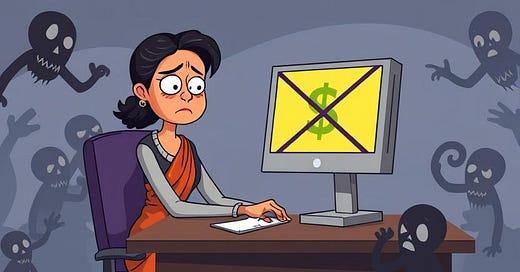



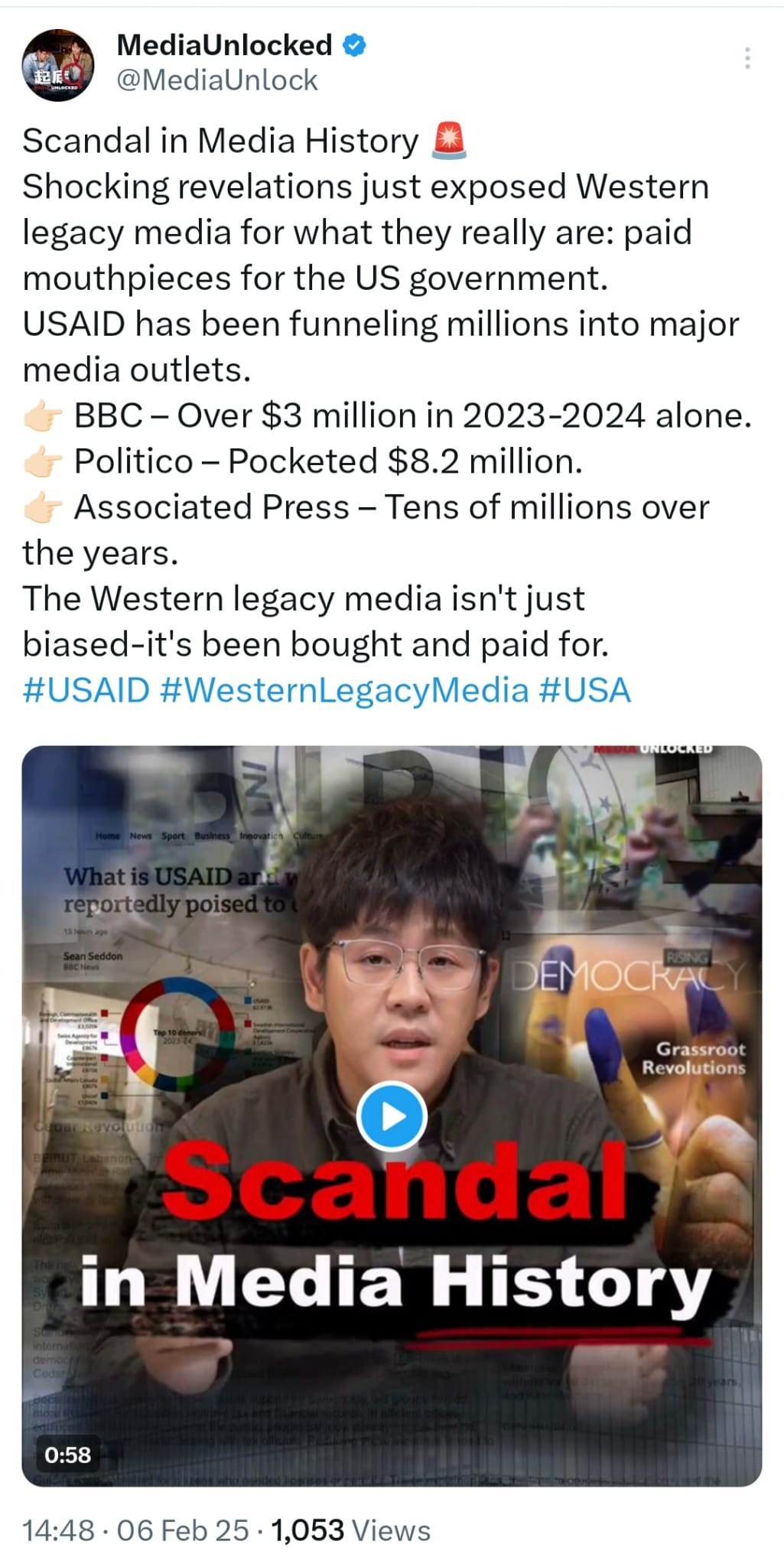
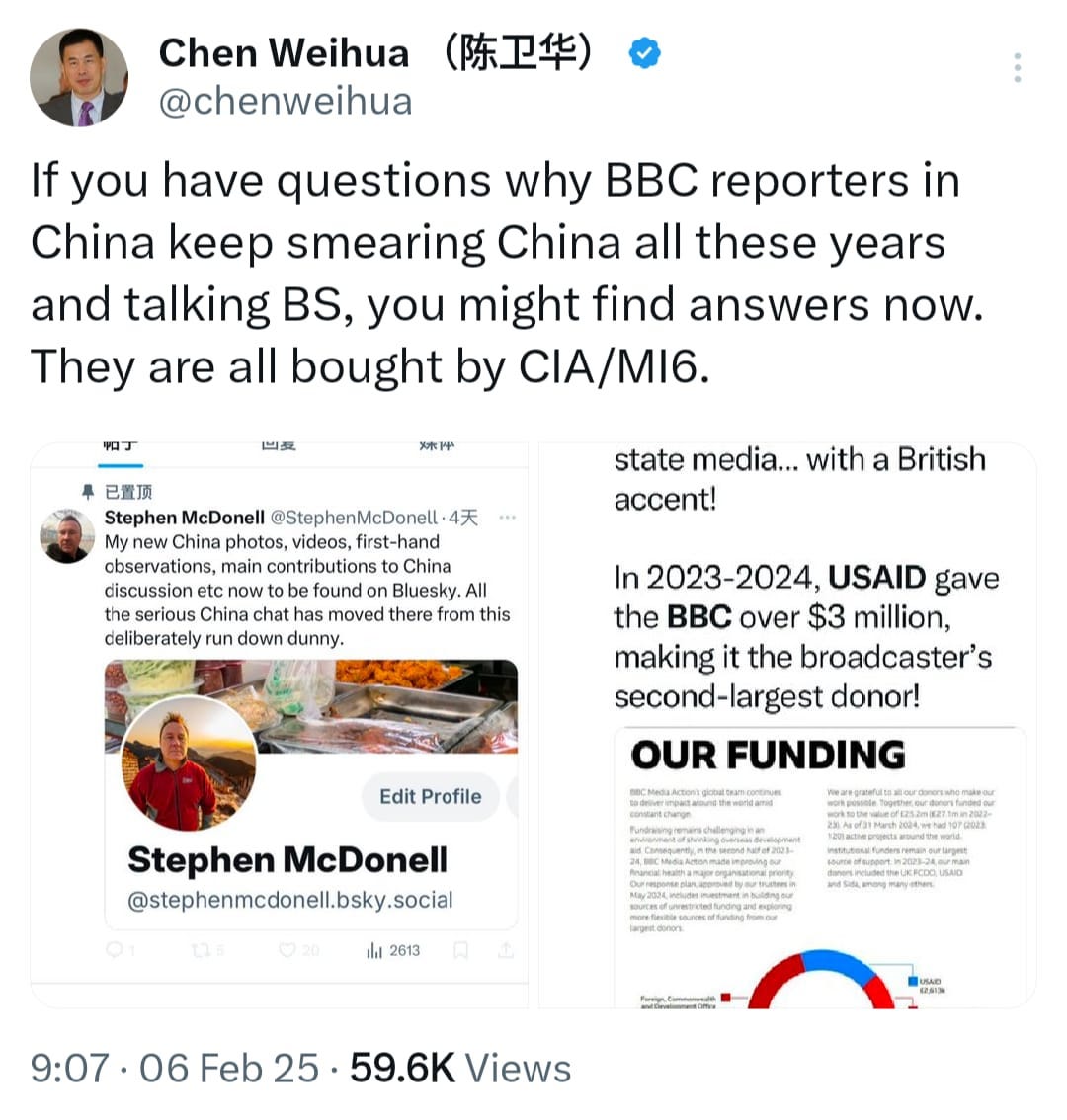

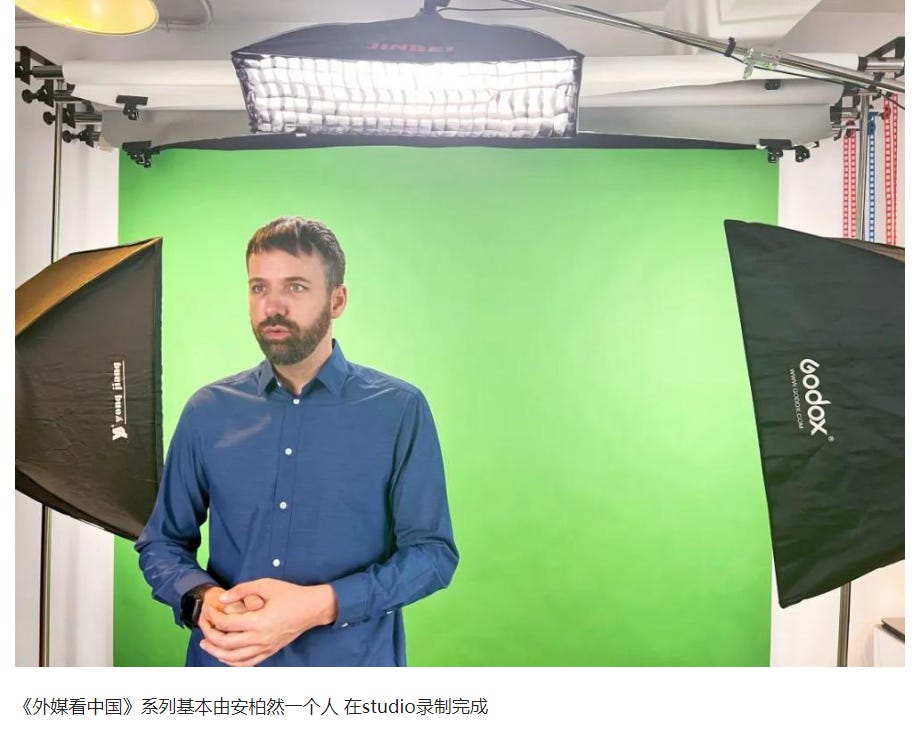

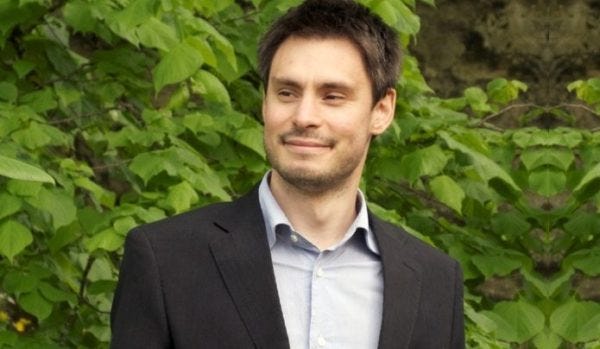
Did you see the absolute bot pile on under Bethany Allen's tweet about how the entire China research sphere is exploding? Terrible. I vaguely know and like Bethany. Nobody deserves that.
Why's the image of an Indian woman in a Sari (and without Bindi) though?
There's many cases where China's firing (at India / Indians) from American shoulders, but this is hardly that.
Most Indians, if anything are *happy* that American Interference in their country has reduced - even if only for 90days.
USAID was sponsoring terrorists who carried out the 26/11 Attacks which killed 180 people! (including 6 Americans!)
https://archive.is/0UAfF